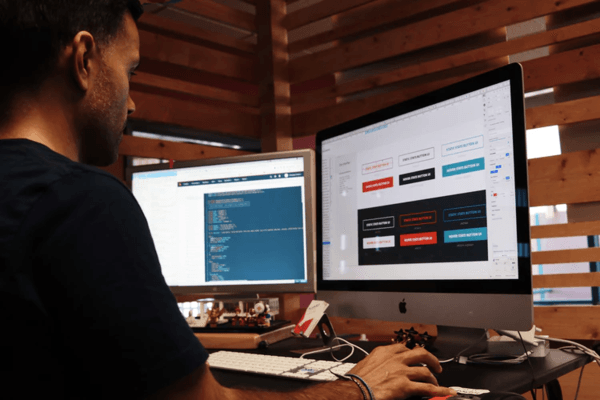
Why Subterranean Data Centers Are Gaining Popularity?
June 6, 2019
Why You Need IT Consulting or a Virtual CIO for Your Business
June 12, 2019Choosing a hosting provider is the first big decision when starting a website. Hosting is the bedrock of your website, and if it is shaky, everything else is questionable, too. Likewise, good hosting sets you on a path to success from the get-go.
Also, yet many new website owners struggle with this decision. They don’t know what to look for.
After all:
You can’t be 100% sure about a hosting provider until you try out their services yourself.
Some website owners tend to get dazzled by all the promises some providers initially make. They might even choose the easy way and go with the cheapest hosting option.
Unfortunately:
Not all providers fulfill their promises once you sign up for their services. There are a lot of unscrupulous people out there, and it pays off to research hosting before you make a decision.
That’s why we’ll explain exactly what you can expect to get with a quality hosting provider that others might not have. These are the things your choice of hosting effects:
Make Sure You Have Proper Support
Reliable customer support is one of the essential qualities of a hosting provider. We can’t stress this enough, yet it’s often overlooked.
The fact of the matter is:
You’re going to encounter a problem at some point. Something might not work correctly, or your entire website might go down. In such cases, you’ll want a fast, professional, well-staffed support team.
A good support team will fix your problems as soon as possible. Server monitoring and frequent malware sweeps might even fix an issue before you know it’s there.
In contrast:
If a provider doesn’t provide excellent support, you might wait for days to get a reply to even a simple query.
In a pinch, an excellent support team will save your website and your reputation.
Your Hosting Provider Should Have Excellent Uptime
Downtime means the server is temporarily not running, so nobody can access your website.
Here’s the thing:
Downtime can be a significant problem. Do you remember when Instagram went down? It instantly made all the headlines.
Now:
Your website going down might not cause as much of outrage, but your visitors won’t be any less upset.
There can be many reasons for server downtime. It can be caused by a power outage, hardware issues, or just scheduled maintenance.
Whatever the reason, it’s nigh-impossible for a provider to ensure 100% uptime. What’s more, it’s almost as difficult for you to get reimbursed if the server is down for too long.
That being said:
Quality hosting providers have measures in place that make sure downtime is minimized. All you have to do is review the provider’s server downtime in the previous months. That will ensure you get the maximum amount of uptime possible.
Make Sure Your Hosting Provider Has Proper Security
Another critical factor, strong security ensures your website stays in your control. You don’t want to lose your hard work to somebody else, after all.
While there’s a lot you can do to bolster website security, the server must be secure, to begin with. Your hosting provider must do their part in providing protection.

Here’s how:
Security sweeps and a secure firewall should be standard practices. A good host also provides frequent automated backups, and the support team is quick to fix the problem in case of a security breach.
The latter part is especially vital with shared hosting. One client having their data compromised can put the entire server at risk.
You must also review security before picking a hosting provider. Don’t be afraid to contact their team and discuss what kind of security measures they have in place.
Website Speed
The speed at which you deliver content to your visitors is one of the most significant predictors of website success. Users love fast websites. Likewise, they hate slow ones.
Here are a few stats showcasing how long load times put off users:
▪ If average page load time goes from one second to five, users are 90% more likely to abandon a site after viewing only one page
▪ Each second of added delay reduces total page views by 11%
▪ Each second of delay directly correlates to a 7% decrease in conversions
In essence, if your website is slow, users become reluctant to interact with it and, if you’re selling a product, to purchase anything.
That’s why experts recommend keeping your load times under three seconds. This ensures you avoid any adverse effects of slow page loading.
However, most website owners fail to do this.
Admittedly:
Website speed mostly depends on how well you optimize your website. However, if the hosting service is poor, it becomes difficult to get your load times under that three-second mark. That’s why you should also take speed into account when choosing a host.
Conclusion
Those are the most critical ways in which your choice of hosting influences your website. That’s why we encourage you to research all hosting options as thoroughly as possible before starting a website or migrating to a new host. It will make all the difference in the world.
